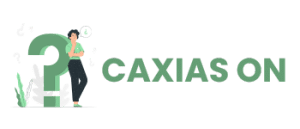Inflation is reshaping the financial reality of households across North America. With the cost of living rising consistently in both the United States and Canada, individuals are reevaluating their spending, savings, and investment habits. The inflation impact extends far beyond economic headlines.
Understanding this shift is vital for anyone aiming to maintain stability during uncertain times. While global factors like supply disruptions and policy responses play a role, the power to adapt begins with individual action. Learning how to navigate inflationary cycles is no longer optional; it’s essential to preserving financial health and long-term security.
Inflation impact Patterns in the U.S. and Canada

Although both countries are experiencing elevated inflation, the underlying causes and intensity vary. In the U.S., inflation impact has been driven by strong post-pandemic demand, labor shortages, and ongoing supply chain issues. Despite rate hikes from the Federal Reserve, prices remain high across sectors, from housing to transportation and food.
Canada’s inflation has followed a slightly different path, with housing affordability and grocery costs leading the surge. The Bank of Canada has responded with aggressive interest rate increases, yet consumers still face reduced buying power. In both nations, the inflation impact is tangible.
Inflation’s Effect on Household Budgets
The most immediate consequence of inflation impact is the increased strain on everyday expenses. Essentials such as groceries, fuel, rent, and utilities are absorbing a larger portion of monthly income. For families already stretched thin, this leaves little room for emergencies or discretionary spending, creating a constant sense of financial pressure.
Savings are also impacted. Even when interest rates rise, the real value of saved money decreases if inflation outpaces returns. At the same time, debt becomes more expensive, especially for those carrying variable-rate loans. As a result, many households are being forced to rethink how they allocate every dollar they earn.
Practical Ways to Shield Your Finances
There are clear, actionable steps you can take to protect your finances from the erosion caused by inflation, especially as prices continue rising across essential categories. These strategies won’t eliminate inflation, but they can reduce its burden and help you stay on track with your goals:
- Strengthen your emergency fund, aiming for three to six months of essential expenses.
- Cut back on non-essential spending, including entertainment, impulse purchases, and luxury services.
- Rebalance your investment portfolio with assets that often perform well during inflation, such as dividend stocks or real estate.
- Negotiate fixed costs, such as insurance premiums and service contracts, to reduce recurring expenses.
- Explore new income sources, including freelance work, side gigs, or remote job opportunities that match your skills.
Each of these measures enhances your financial resilience by helping you take control of your money in practical, meaningful ways. Planning ahead, even through minor adjustments, provides a buffer against unpredictability and makes financial decisions less stressful.
The Role of Government Policy
To manage inflation impact, both countries have tightened monetary policy by raising interest rates, slowing borrowing and cooling the economy. While this approach is necessary, it also raises loan costs and can limit access to credit, especially for small businesses and middle-class families.
Government programs may offer some relief, but they’re not a substitute for personal responsibility. Staying informed about policy changes, such as tax credits or subsidies, ensures you take advantage of what’s available while continuing to build independence from outside support.
Moving Forward with Confidence
With thoughtful decisions, discipline, and a proactive mindset, you can maintain control of your financial future, even as external conditions shift around you. Inflation impact may raise costs and challenge your habits, but it doesn’t eliminate your ability to adapt, grow, and protect your goals.
The key lies in anticipating change rather than reacting to it, positioning yourself to make steady progress regardless of market conditions. By staying informed, taking measured steps, and focusing on what you can control, you’ll turn a difficult economic cycle into a foundation for long-term resilience and financial strength.



